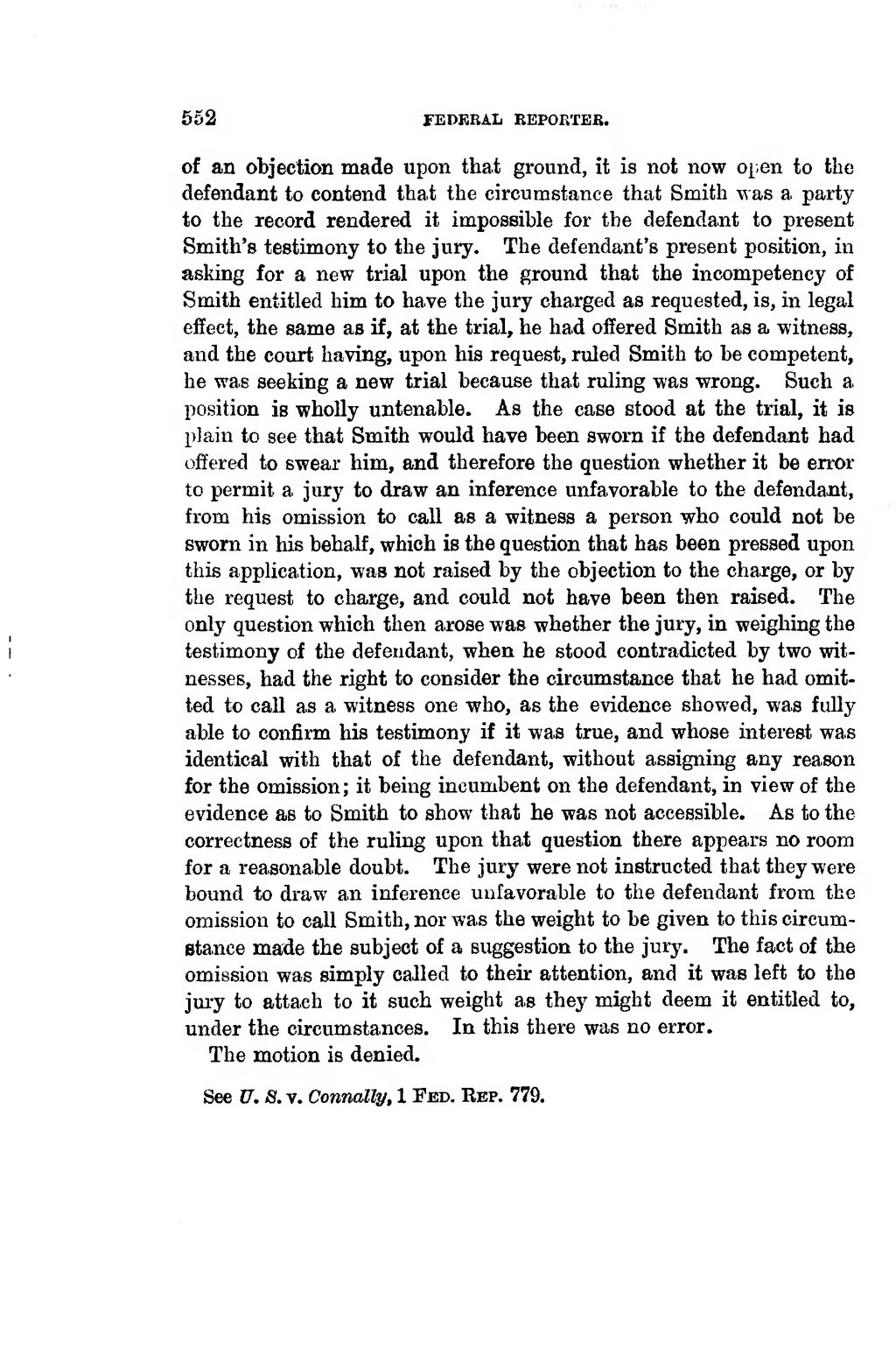552 TEDKBAL EEPOKTER. �of an objection made upon that ground, it is net now oien to the defendant to contend that the circumstance that Smith ■«as a party to the record rendered it impossible for the defendant to present Smith's testimony to the jury. The defendant's present position, in asking for a new trial upon the ground that the incompetency of Smith entitled him to have the jury charged as requested, is, in legal eiiect, the same as if, at the trial, he had offered Smith as a wituess, and the court having, upon his request, ruled Smith to be competent, he was seeking a new trial because that ruling was wrong. Such a position is wholly untenable. As the case stood at the trial, it is plain to see that Smith would have been sworn if the defendant had ofiered to swear him, and therefore the question whether it be error to permit a jury to draw an inference unfavorable to the defendant, from his omission to call as a witness a person who could not be sworn in his behalf, which is the question that bas been pressed upon this application, was not raised by the objection to the charge, or by the request to charge, and could not have been then raised. The only question which then arose was whether the jury, in weighing the testimony of the defendant, when he stood contradicted by two wit- nesses, had the right to consider the circumstance that he had omit- ted to call as a witness one who, as the evidence showed, was fully able to confirm his testimony if it was true, and whose interest was identical with that of the defendant, without assigning any reason for the omission; it being incumbent on the defendant, in view of the evidence as to Smith to show that he was not accessible. As to the correctness of the ruling upon that question there appears no room for a reasonable doubt. The jury were not instructed that they were bound to draw an inference uufavorable to the defendant from the omission to call Smith, nor was the weight to be given to this circum- stance made the subject of a suggestion to the jury. The fact of the omission was simply called to their attention, and it was left to the jury to attach to it such weight as they might deem it entitled to, under the cireumstances. In this there was no error. The motion is denied. �See U. S. V. Connally, 1 Eed. Eep. 779. ��� �
